
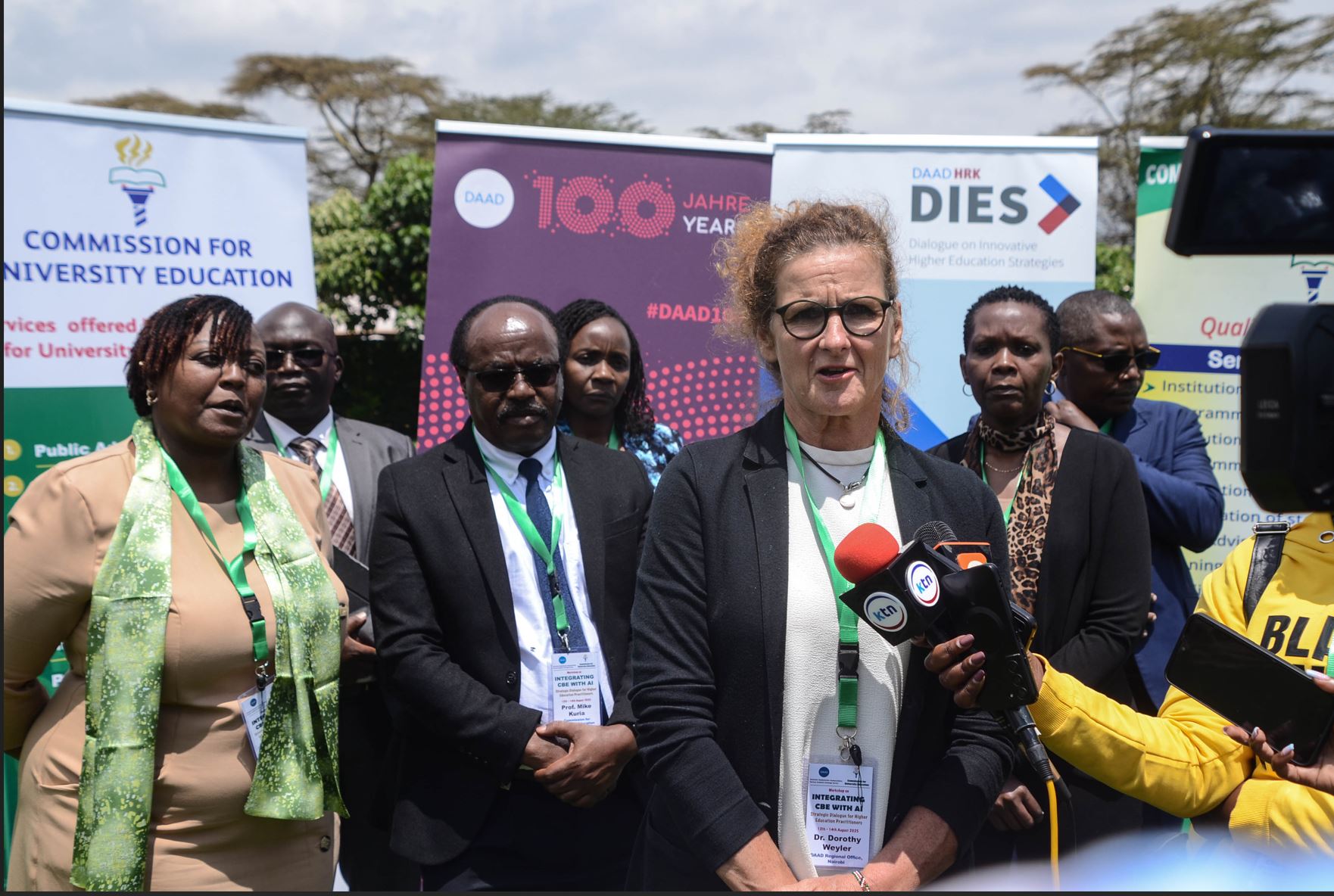 DAAD Director Dr. Dorothee Weyler, together with Commission for University Education, CEO Prof Mike Kuria, Ministry of Education Secretary, State Department for Higher Education Dr. Carol Hunja, and other officials, addressing journalists during the workshop at Lake Naivasha Resort at Lake Naivasha Resort on August 12, 2025./DOUGLAS OKIDDY
DAAD Director Dr. Dorothee Weyler, together with Commission for University Education, CEO Prof Mike Kuria, Ministry of Education Secretary, State Department for Higher Education Dr. Carol Hunja, and other officials, addressing journalists during the workshop at Lake Naivasha Resort at Lake Naivasha Resort on August 12, 2025./DOUGLAS OKIDDY
The German Academic Exchange Service (DAAD), in collaboration with Kenya’s Commission for University Education (CUE), has launched a strategic dialogue on integrating competence-based education (CBE) and artificial intelligence (AI) into higher education.
The three-day workshop, held at Lake Naivasha Resort under the Dialogue on Innovative Higher Education Strategies (DIES) programme, brought together deans, quality assurance directors, and AI practitioners from universities across the country to reflect on the role of technology in shaping the future of teaching, learning, and institutional development
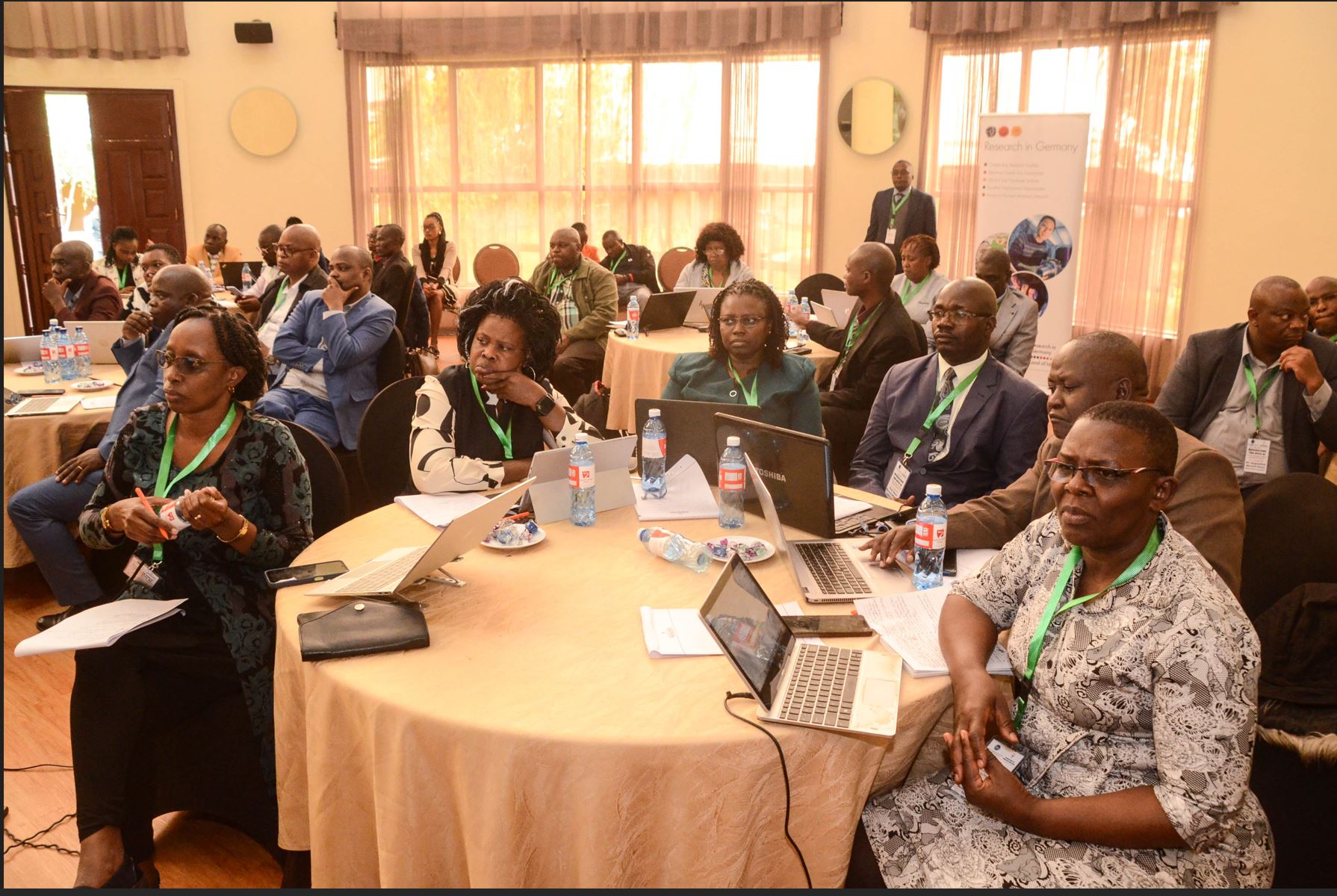 Higher education leaders, including Deans, Deputy Vice Chancellors, and quality assurance leaders from more than 20 different universities across Kenya, during the workshop at Lake Naivasha Resort on August 12, 2025./DOUGLAS OKIDDY
Higher education leaders, including Deans, Deputy Vice Chancellors, and quality assurance leaders from more than 20 different universities across Kenya, during the workshop at Lake Naivasha Resort on August 12, 2025./DOUGLAS OKIDDYOpening the workshop, DAAD Director Dr. Dorothee Weyler underscored the significance of AI and CBE in higher education.
“The goal of this workshop is to give space for reflecting on and discussing the integration of competence-based education and artificial intelligence in teaching and learning,” she said.
“This workshop should be seen as a starting point for future communication activities and decisions to face, on the one hand, the opportunities and challenges in the use of AI as such and, in particular, in the framework of the CBE and the resulting changes in Kenyan universities.”
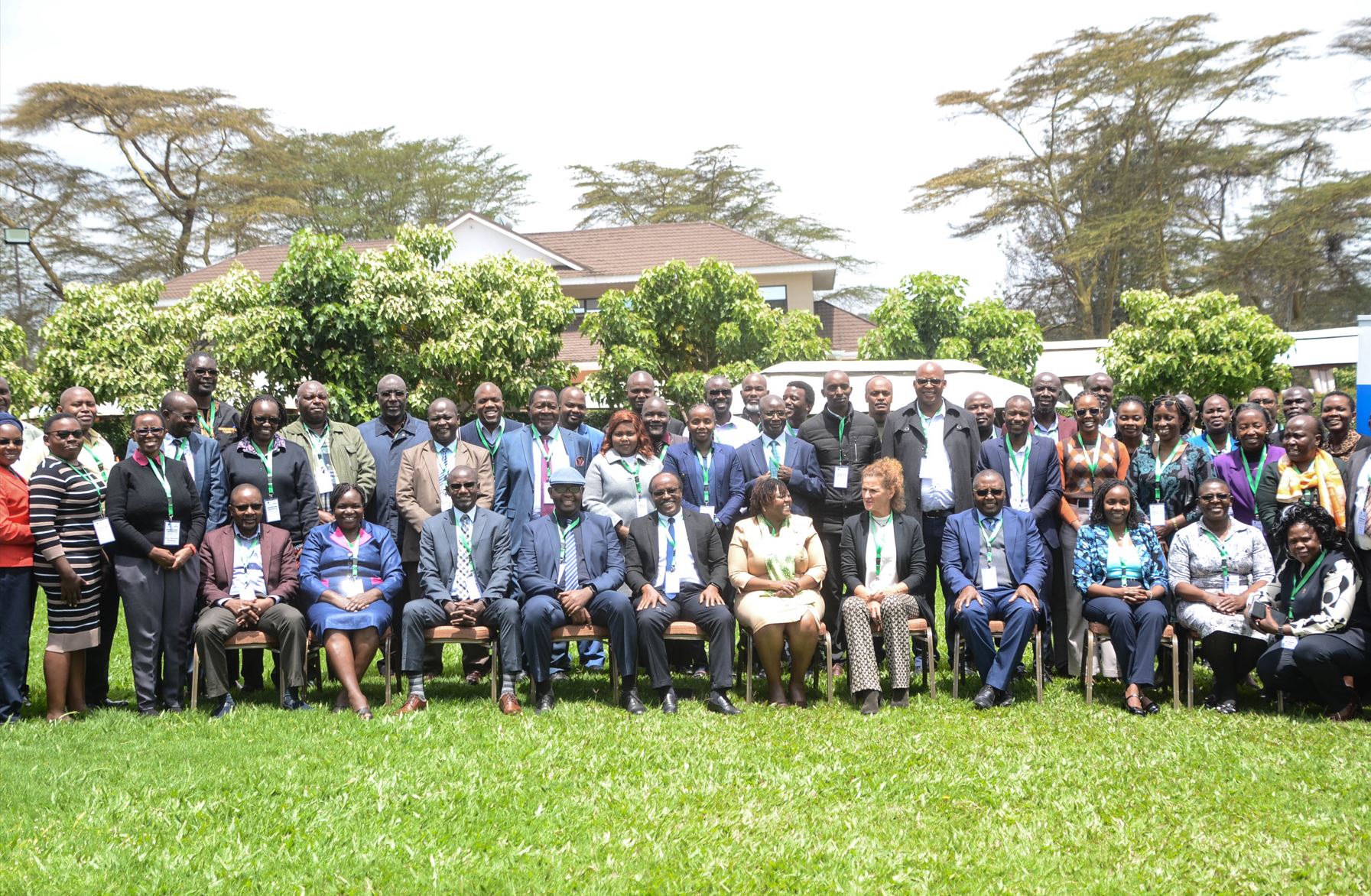 Higher education leaders, including Deans, Deputy Vice Chancellors, and quality assurance leaders from more than 20 different universities across Kenya, pose for a photo at Lake Naivasha Resort on August 12, 2025./DOUGLAS OKIDDY
Higher education leaders, including Deans, Deputy Vice Chancellors, and quality assurance leaders from more than 20 different universities across Kenya, pose for a photo at Lake Naivasha Resort on August 12, 2025./DOUGLAS OKIDDY
Chief Executive Officer Prof. Mike Kuria noted that AI could transform education by expanding access and ensuring global competitiveness.
“Our local job markets are limited, but AI empowers students to access opportunities globally,” he said.
“With AI, a student in Turkana, Kenya, can access the same resources as a student in London.”
The Ministry of Education also backed the initiative, with Dr. Carol Hunja, representing Principal Secretary Dr. Beatrice Inyangala, stressing the need for graduates to be industry-ready.
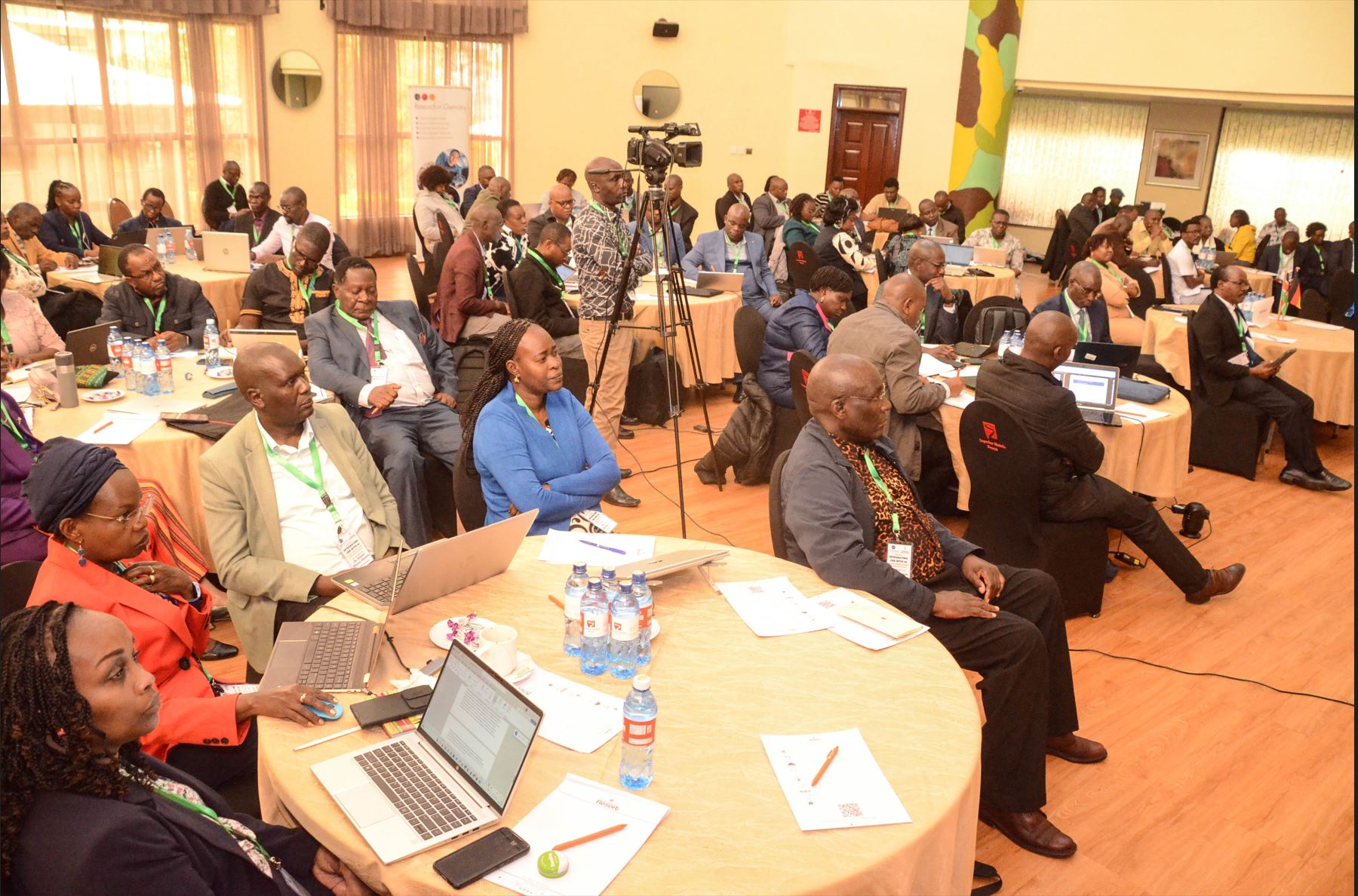 Higher education leaders, including Deans, Deputy Vice Chancellors, and quality assurance leaders from more than 20 different universities across Kenya, during the workshop at Lake Naivasha Resort on August 12, 2025./DOUGLAS OKIDDY
Higher education leaders, including Deans, Deputy Vice Chancellors, and quality assurance leaders from more than 20 different universities across Kenya, during the workshop at Lake Naivasha Resort on August 12, 2025./DOUGLAS OKIDDY“We have AI as a tool that we can leverage on and use to make sure that we can maintain in the global world and train graduates who are ready to join industries and employment,” she said.
CUE highlighted ongoing efforts, including guidelines for teacher education programmes, a short course on CBE basics that has already trained over 600 university staff, and a 2024/2025 study on disruptive technologies.
The findings on AI, big data, virtual labs, and robotics are already influencing policy and planning.
Key recommendations from the Naivasha meeting include finalising AI integration in Kenya’s national CBE framework, establishing university-level task forces, sensitising faculty, and mobilising resources for infrastructure, training, and AI-related research. Leaders also agreed to form a community of practice for ongoing collaboration.
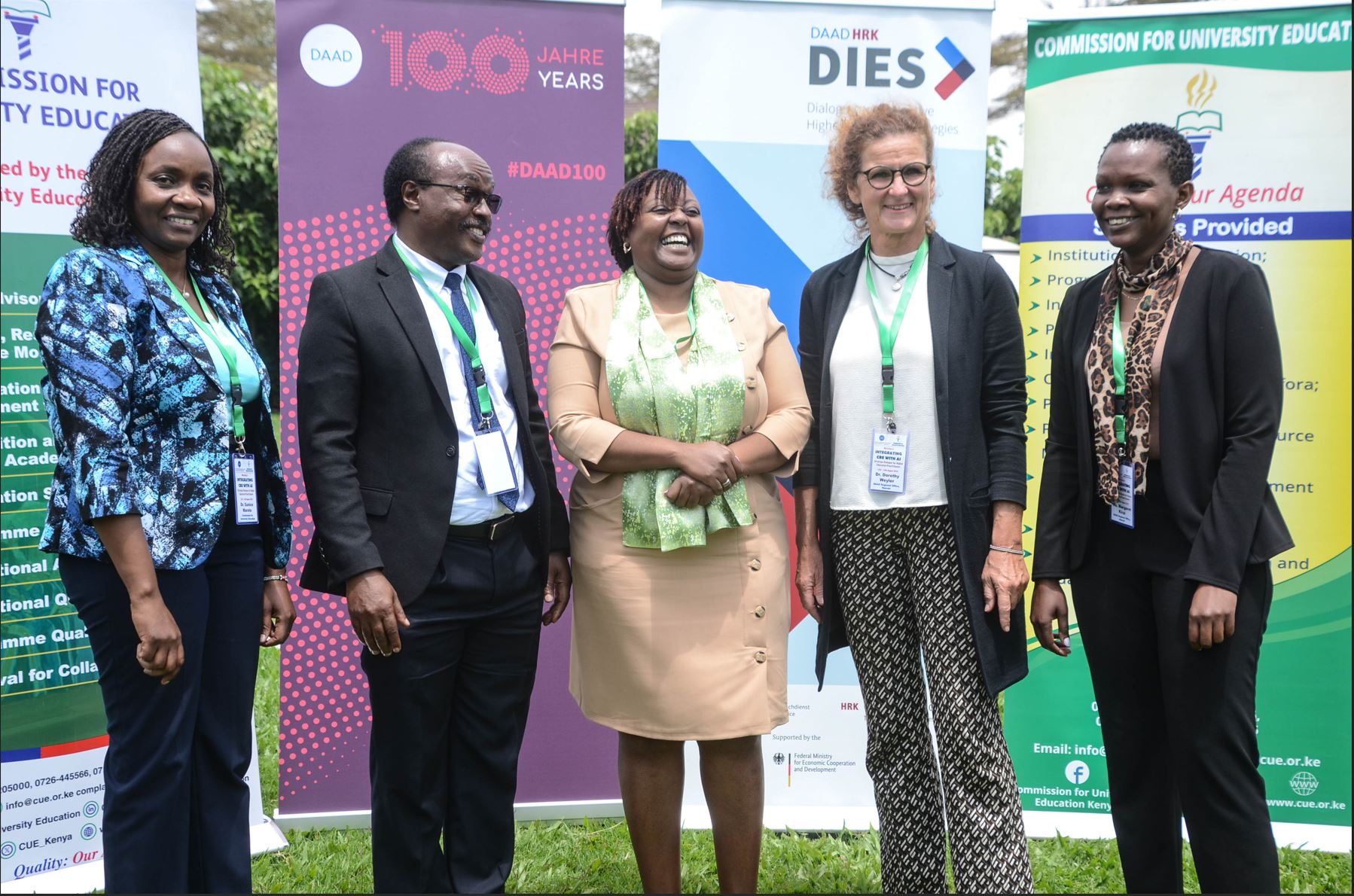 Commission for University Education, Deputy Commission Secretary, Dr. Eunice Marete, CEO Prof Mike Kuria, Ministry of Education Secretary, State Department for Higher Education Dr. Carol Hunja, DAAD Director Dr. Dorothee Weyler, and Head of Administration and Finance Margaret Kirai during the workshop at Lake Naivasha Resort on August 12, 2025./DOUGLAS OKIDDY.
Commission for University Education, Deputy Commission Secretary, Dr. Eunice Marete, CEO Prof Mike Kuria, Ministry of Education Secretary, State Department for Higher Education Dr. Carol Hunja, DAAD Director Dr. Dorothee Weyler, and Head of Administration and Finance Margaret Kirai during the workshop at Lake Naivasha Resort on August 12, 2025./DOUGLAS OKIDDY.DAAD, which this year marks 100 years of promoting international academic exchange, has supported over 45,000 students, academics, and researchers across East Africa and about 18,000 Kenyan students over the past five decades.
Its Nairobi Regional
Office also serves Uganda, Tanzania, Ethiopia, South Sudan, Rwanda, Burundi,
the Democratic Republic of Congo, and Somalia.












